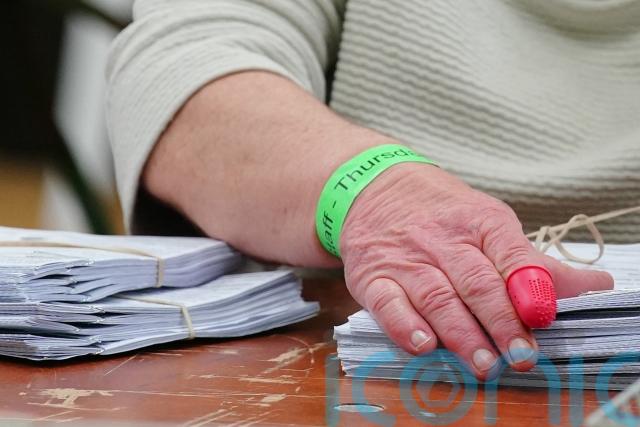
Ministers are moving ahead with plans to remove the right of EU citizens to vote and stand in elections in England and Northern Ireland.
Seven years after the UK voted for Brexit, the Government confirmed plans to remove the automatic right of EU citizens to vote and stand in local elections.
Levelling Up minister Dehenna Davison, in a written ministerial statement, told MPs that the Government had published draft secondary legislation to bring forward the change.
She said: “The automatic right that European citizens have to vote and stand in local elections in the UK granted solely as a consequence of our EU membership is not one which can continue.”
The change is expected to take effect from 7 May 2024, so will come after the next set of local elections.

Not all EU citizens will be affected by the rule change, with EU citizens legally resident in the UK before the end of December 2020 still able to stand and vote in local elections.
Anyone from Poland, Spain, Luxembourg or Portugal will also remain unchanged, after the UK signed agreements to protect the voting rights of British citizens in those countries.
Irish citizens or those from Commonwealth countries will also see voting rights unaffected.
The power to make the changes came in the Elections Act 2022, with the move also applying to police and crime commissioner elections in England and Wales.
“There has never been a general right for European nationals to vote in Parliamentary elections – choosing the next UK Government is already rightly restricted to British citizens and those with the closest historic links to our country, and this will not change,” Ms Davison told MPs in the statement.
“Going forward, the local voting rights of EU citizens living in the UK should be considered alongside the rights and interests of British citizens living abroad.
“In future, the rights of EU citizens living in the UK will rest on the principle of a mutual grant of rights, through agreements with EU Member State.”
The changes will also apply to Northern Ireland, with secondary legislation set to cover both local and Assembly elections.
The devolved administrations in Scotland and Wales have the power set their own rules on voting eligibility.
Subscribe or register today to discover more from DonegalLive.ie
Buy the e-paper of the Donegal Democrat, Donegal People's Press, Donegal Post and Inish Times here for instant access to Donegal's premier news titles.
Keep up with the latest news from Donegal with our daily newsletter featuring the most important stories of the day delivered to your inbox every evening at 5pm.